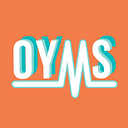A Complete Guide to Toronto Metropolitan University’s Biomedical Science
Learn about everything from prerequisites to first year courses, co-op, career options, and more!
A Complete Guide to TMU Biomedical Science
Immunology, microbiology, physiology…do these topics sound interesting to you? If they do, then you are in the right place! This week’s undergraduate program review will outline all of the amazing aspects of TMU’s Biomedical Science program. The program comes with many rewarding and experiential opportunities to gain experience in laboratories and to work hands-on in the lab with your classmates and professors.
TMU is also located in a highly concentrated area where healthcare is at its finest, surrounded by many hospitals specialized to provide care to people with a range of diseases and illnesses. If you are interested in this program, be sure to keep reading to gain a complete guide to the program.
What Courses Will I Take?
The Biomedical Science program at TMU offers unique courses in each year of study. In year 1, your course schedule will mainly consist of traditional science courses including biology, physics, chemistry, and math. Although you may not take some of these courses in the future, it certainly helps lay the foundation to apply these concepts to scientific research and understanding.
In year 2, you will be introduced to more specific courses related to biomedical science specifically including biochemistry, cell biology, microbiology, and others.
In years 3 and 4 you have the opportunity to learn about a more specific area of interest since the majority of your courses will be chosen by you to match your interests. Throughout these courses, you have the opportunity to continue learning about these concepts in the traditional classroom-style lecture, however, in upper years, you transition into the lab more often to apply what you have learned to scientific concepts.
To learn more about required and elective courses, click here.
Prerequisites
Like all programs in Ontario and most likely across the country, there are mandatory prerequisite courses that must be fulfilled in order for you to be considered for admission. These include:
- English (ENG4U)
- Advanced Functions (MHF4U)
- One of Physics (SPH4U) or Chemistry (SCH4U) or Biology (SBI4U)
- One of Calculus (MCV4U) or Data Management (MDM4U)
In terms of the admission averages, the range that is deemed to be competitive is between 88–94%+, however, to be considered you must obtain an overall average of 70% in your final academic year.
Thinking of Co-op?
The Biomedical science program at TMU is traditionally a four-year program which will give you an Honours Bachelor of Science degree at the end of your studies. However, if you think that you need some extra time to determine what you are truly passionate about, extending your degree by one extra year to complete a co-op position is a great idea and certainly, an option that TMU provides.
The summer after your second year is when you will begin your first work term and will complete the second and third work terms in the second semester of your third year and the summer after. In the fall semester of your fourth year, you will complete your fourth work term followed by another school semester. Your final work term would be in the summer or your fourth year.
Co-op is a great option to help students gain more practical and hands-on working experience in their field of interest. But, it is also a great opportunity to explore areas that you feel would be a good future career choice.
Future Careers
The Biomedical Science program provides you with the skills to take on many industries affiliated with healthcare leaving you with many options post-graduation. Some of these include industry, health, government, business, and education. Becoming part of the “industry” means that you can start your career at pharmaceutical and/or medical technology companies to apply your knowledge to real products and devices to improve people’s health.
On the more person-to-person side of things, this program also sets you up with the skills that will help you succeed in areas including clinical science and genetic counselling.
If you are also interested in government and business, you will also have the skills to work for the government on national defence science policy, and technological innovation, and for a business, you can work as a healthcare administrator, product analysis and/or management, and the list goes on and on!
Finally, and probably very common among graduates, is the option to pursue graduate school including pursuing a master’s degree, a law degree or pursuing medicine.
I hope this review gave you some more insight as you begin to make the decision of where you want to spend the next four years of your life! Be sure to check out this website for a summarized version of admissions information and to also learn about some stories from alumni who have graduated and pursued different careers in the healthcare industry. Best of luck!
About the Writer
Wynter Sutchy is a second-year undergraduate student at McMaster University studying Biology (Physiology) and is from King City, ON. She is very passionate about the healthcare field and enjoys sharing her volunteering experiences through writing. She plans to pursue a career in medicine in the future and plans to explore the field of healthcare through research and volunteering throughout her undergraduate career. In her free time, you can expect her to be watching her favorite show, Greys Anatomy, teaching children how to swim, or baking some delicious desserts!
